Established in 1992
Mission Statement
The Canadian International Institute of Applied Negotiation (CIIAN) is dedicated to the prevention and resolution of destructive conflict and to building sustainable peace at local, national, and international levels.
The Canadian International Institute of Applied Negotiation (CIIAN) has been a pillar of leadership in the field of conflict resolution for over three decades. Our story is one of passion, commitment, and innovation, fueled by a deep-seated desire to build a more peaceful world. Our roots run deep. Founded in 1992 by Senator and past Ambassador to the UN for Disarmament, Douglas Roche, the Honourable Justice Mark McGuigan, and Dr. Ben Hoffman, past Director of Conflict Resolution for the Carter Center, CIIAN has a long history of providing trusted expertise in peacebuilding, mediation, negotiation, and facilitation to thousands of individuals in Canada and beyond. CIIAN's unique strength lies in our blend of theory-informed practice and empirical methods, a balance that has positioned us as a leader in the field. But our mission extends beyond mere theory - we're dedicated to practical change, equipping individuals and organizations with the skills needed to prevent and resolve destructive conflicts. Our team comprises seasoned professionals whose customized interventions and training programs incorporate the latest research, best practices, and invaluable lessons learned from the field.
Overview of CIIAN's Activities and Impact
Pioneering Programs
Integration of ADR Systems into Canadian Fabric
International Program
Establishing Professional Standards
Mediation and Dispute Resolution Services
Through our ongoing commitment to our mission, we continue to strive towards preventing and resolving destructive conflicts and building sustainable peace at local, national, and international levels. Every individual we train, every conflict we mediate, and every community we impact, we make strides towards the CIIAN vision.
Want to Learn More About CIIAN's Story?
Since its establishment in 1992, the Canadian International Institute of Applied Negotiation (CIIAN) has been a trailblazer in the fields of negotiation and mediation. As the first pan-Canadian institute to offer certificates in these disciplines, CIIAN has gained a formidable reputation for its exceptional programming and training.
After meticulous design and planning, in 1992, CIIAN launched a comprehensive certificate program in Alternative Dispute Resolution(ADR), which was guided by the philosophy of theory-informed practice. CIIAN attracted some of the most skilled and qualified trainers to deliver the program and a wide diversity of candidates participated in the ADR Program from across Canada and beyond over the years. We have revised our original program five times to ensure its quality and maintain our unique position in the marketplace and expanded our offerings across a wide range of topics in conflict, negotiation and human rights, including offering professional designations for conflict resolution practitioners and negotiators, that are backed by the professionalism and ethical foundations of CIIAN.
Beyond Canada's borders, CIIAN is committed to advancing the field of negotiation and mediation. In 1994, we initiated an international program that has fostered collaborations with organizations worldwide. From supporting emerging conflict resolution programs in post-Soviet Union environments to empowering mid-range actors in diverse regions such as Eastern Europe, South America, South Asia, Africa, the Middle East, and the Caribbean, CIIAN has played pivotal roles as a catalyst, mentor, designer, trainer, and evaluator. Today, we proudly partner with organizations in various countries, custom-designing and offering our esteemed Peacebuilding and Conflict Resolution Training Program to international audiences from over 30 nations.
Our dedication to impactful initiatives and strategic partnerships has been instrumental in advancing conflict resolution and mediation. At CIIAN, we excel in designing and developing pioneering programs that shape the landscape of conflict resolution. Noteworthy examples include the design and development of the inaugural program for the Lester B. Pearson Canadian International Peacekeeping Training Centre, the Center for Development and Integration, and our provision of negotiation and mediation training for Canada’s Department of Defence’s Peace Support Training Centre (PSTC). Furthermore, CIIAN has delivered specialized courses on negotiating and mediating in disaster contexts and humanitarian emergencies in partnership with the Center of Excellence in Disaster Management and Humanitarian Assistance. Our expertise is sought after globally, with training programs delivered to prestigious organizations such as the ZIF Centre for International Peace Operations, the Swiss Foreign Ministry, and the University of York's Post-war Reconstruction and Development Unit.
Always seeking new and innovative ways to reduce violence and to use alternative dispute resolution as a means of fulfilling the interests of all parties concerned, CIIAN launched the International Peace and Prosperity Project (IPPP) in Guinea-Bissau. Using highly-targeted small grants at critical points during a stressful period, CIIAN effectively and timely intervened to diffuse social tensions and prevent violence in this small West African nation. We have also earned accolades for our customized corporate programs, ranging from conflict management in the workplace, to mediation of alleged harassment and early intervention programs within the Public Service Commission's appeals process. Our partnerships with Canadian police services have enhanced collaborative community policing efforts nationwide, while training civil servants at the federal and provincial levels has equipped them with negotiation and mediation skills to handle potentially volatile situations and better understand the concerns and interests of the parties involved.
In addition to our renowned training programs, CIIAN offers professional services, drawing upon our extensive experience and expertise. Over the years, we have conducted investigations, interventions, and provided effective mediation services to address a wide range of conflict scenarios. As the field of ADR continues to evolve, CIIAN remains at the forefront of development and adaptation. Our training programs incorporate the latest research and empirically tested methods refined by our seasoned practitioners. Choosing CIIAN means gaining access to unparalleled expertise, a network of accomplished professionals, and training programs that consistently stay ahead of the curve.
Advisory Board
CIIAN’s Advisory Board comprises distinguished professionals and experts who provide invaluable guidance and support to our organization. Their diverse expertise and insights help us to continually improve and innovate in our efforts to prevent and resolve destructive conflict.
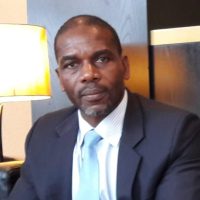
Jeffrey Mapendere
Jeffrey Mapendere currently serves as the Chief Security Arrangements Advisor for the Reconstituted Joint Monitoring and Evaluation Commission (RJMEC) in Juba, South Sudan. Recognized as an expert in political mediation, security arrangements, and peace process design, Jeffrey has been instrumental in supporting the Inter-Governmental Authority on Development (IGAD) peace processes in Sudan and South Sudan serviing as Senior Advisor to high-level IGAD officials. He has also provided counsel to several Special Representatives/Envoys of the United Nations Secretary-General and senior government officials on political mediation.
Jeffrey’s past roles include Senior Advisor for Security Arrangements and Process Design for the United Nations Standby Team of Mediation Experts, Field Office Director for The Carter Center in Sudan and South Sudan, Executive Director of the Canadian International Institute of Applied Negotiation (CIIAN), and Assistant Director of the Conflict Resolution Program at The Carter Center HQ in Atlanta.
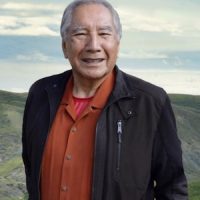
Leroy LIttle Bear
Leroy Little Bear is a distinguished scholar and advocate for Indigenous rights, known for his extensive work in Indigenous education and policy. He earned a Bachelor of Arts and Juris Doctor from the University of Alberta and played a pivotal role in establishing the Native American Studies Department at the University of Lethbridge, where he served as chair. Little Bear was a key contributor to the drafting of the United Nations Declaration on the Rights of Indigenous Peoples (UNDRIP).
His work has significantly advanced the integration of Indigenous knowledge systems into academia and policy-making. Leroy Little Bear has received numerous accolades for his lifelong dedication to Indigenous education and advocacy, including being named an Officer of the Order of Canada.

Susan Bartels
Dr. Susan Bartels is a Professor of Emergency Medicine at Queen’s University and a practicing emergency physician at Kingston Health Sciences Centre. As a SEAMO Clinician-Scientist and Tier II Canada Research Chair in Humanitarian Health Equity, she focuses on the impacts of humanitarian crises on women and children. Her projects include studies on child marriage among Syrian refugees and relationships between local communities and UN peacekeepers in conflict zones. Dr. Bartels directs the Queen’s Global Emergency Medicine Fellowship and co-founded ARCH, a research collaborative for global health equity. Previously, she served as Director of Global Health at Beth Israel Deaconess Medical Center and Assistant Professor at Harvard Medical School. Dr. Bartels’s research aims to enhance aid delivery and health equity in crisis settings.

christopher burke
Christopher Burke is a seasoned professional in conflict transformation, public relations and communications, recognized for his extensive work with governments, multilateral organizations and corporations across Asia, where he worked for nearly a decade, and Africa, where he has spent almost 25 years. He has focused on a range of governance and conflict-related issues, including natural resources such as land, forestry, agriculture and extractives, as well as human-animal conflict with chimpanzees. Christopher played an instrumental role in the implementation of the 1999 Nairobi Peace Agreement and is highly sought after for his expertise in land-related conflicts including land tenure and socially responsible agro-forestry practices. He has spearheaded numerous sensitization campaigns and participated in UN Peacekeeping Operations in South Sudan. His published works on sustainable development, conflict transformation and digital land mapping reflect his commitment to advancing knowledge and fostering growth. With a robust international portfolio, Christopher has a sound understanding of public relations, conflict resolution, peace and security and international development.
Require More Than Just Training?

Charles Davidson
Charles E. Davidson, PhD, is a Research Assistant Professor at the Carter School for Peace and Conflict Resolution at George Mason University, specializing in civil war, armed groups, and local peace processes. He directs the Rotary and Carter School Collaboration for Peace and the Political Leadership Academy, focusing on equipping American leaders to sustain democracy. With over 15 years of professional peacebuilding and research experience, Charles has worked in Iraq, Afghanistan, Uganda, Burundi, the D.R. Congo, Tunisia, and Colombia. He is also the founder and president of Innovations in Peacebuilding, dedicated to supporting local peacebuilding practices and education.
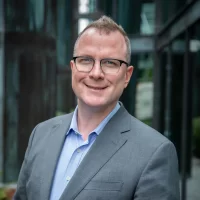
adam taylor
Adam is a recognized expert in international trade and negotiations, connecting businesses with trade and investment opportunities in Canada and globally. He has served as a senior advisor to a Prime Minister and numerous Canadian ministers of foreign affairs and international trade. Adam played a key role in the strategic planning for the Canada-European Union Comprehensive Economic and Trade Agreement (CETA) and Canada’s entry into the Trans-Pacific Partnership negotiations. He also led the development of the Global Markets Action Plan, focusing on advancing Canadian capabilities in priority markets. Adam has advised on economic and foreign policy, including initiatives related to the G-8 and G-20 summits. Adam’s commentaries on trade and economic issues have been widely published in national and international media.
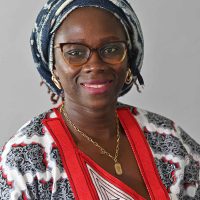
cyrille ralonde bechon
Cyrille has over 15 years of experience as a human rights advocate. She is the Executive Director of “Nouveaux Droits de l’Homme” and works on monitoring, documenting, and reporting human rights violations and sexual violence against women and girls. She supports victims with legal aid and access to criminal justice through strategic litigation. Cyrille is a strong advocate for the Rule of Law, democratic and civic space, public freedoms, and women and youth participation in peace processes. She is a Council Member of the International Peace Bureau and a member of the Africa Coalition “State of the Union.” Cyrille is also a H. Humphrey fellow at American University, Washington College of Law and a PhD candidate.
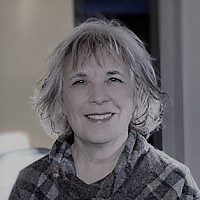
Theresa Dunn
With over 35 years of expertise in conflict resolution and organizational development, Theresa Dunn is a highly skilled mediator and trainer. She holds an MA in Community Psychology and certifications as a mediator, peacebuilder, and executive coach. Theresa’s extensive experience includes working with individuals, communities, organizations, faith groups, and international organizations. Her practice spans conflict analysis, organizational development, and mental health issues. Theresa’s peacebuilding work focuses on traumatized individuals, restorative justice, and raising awareness and resilience. She has provided training for the Department of National Defence, Department of Justice, and Canada Revenue Agency. Internationally, she has built capacity with members from Ukraine, Sudan, Lithuania, and Rwanda. Theresa is committed to building a culture of peace and currently co-chairs the National Board of the Canadian Peace Initiative.
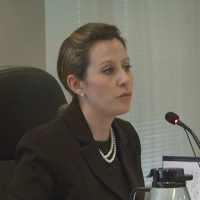
Sophie Marchildon
Sophie Marchildon is the founder and past director of CIIAN’s Human Rights Branch. She is an international and domestic human rights expert with over 20 years of experience. She is also a seasoned human rights judge and mediator. She has mediated hundreds of human rights disputes and chaired and adjudicated numerous complex human rights cases over the last fourteen years as a member of the Canadian Human Rights Tribunal. She is well known for chairing the historic nation-wide Federal case involving First Nations children on reserves and Canada. In 2023, she approved a historic $23.4 billion compensation settlement for victims of systemic and racial discrimination, the largest in Canadian history. Her rulings have also led to important social and health reforms upholding substantive equality rights and over 4.4 million services delivered to First Nations children on and off-reserve under Jordan’s Principle. The United Nations Economic and Social Council, recommended that the State party (Canada) fully comply with her 2016 decision and the UN Committee on the Elimination of Racial Discrimination recommended the same for all her rulings.
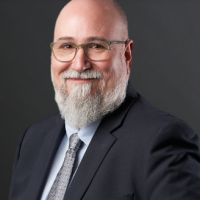
Raul Lara
Raúl Lara Maiz has over 25 years of experience representing national and international companies, specializing in labor and immigration best practices, compliance, and prevention from a business perspective. An expert negotiator, Raúl excels in collective terminations, employer substitutions, and union negotiations. He has successfully executed strategies for the closure of companies, labor reorganizations, and compliance with labor reforms. Raúl holds a Law Degree from the University of Monterrey and has been recognized by Legal 500 and Best Lawyers Mexico. He has contributed to several publications, including “The Global Employer: Focus on Global Immigration & Mobility” and “Doing Business in Mexico.”

Francis Tazoacha
Francis Tazoacha has extensive experience across numerous domains, including climate change-induced conflicts, natural resource conflict, strategic peacebuilding, gender, peace and security, democracy and governance, human security, and sustainable development through an integrated and participatory approach. He is the past Director of the Peace and Security Division at Nkafu Policy Institute, where he led initiatives on conflict resolution and human security across Africa. Previously, he served as a Senior Consultant at the Pan African Institute for Development, West Africa, and as a Senior Project Officer at the Centre for Conflict Resolution in South Africa. Francis has also lectured at the University of Hargeisa, teaching courses on peace and security, natural resources, and climate change. His work spans the Horn of Africa, the Great Lakes region, and beyond, demonstrating his deep commitment to sustainable development and peacebuilding.

Jamie Arbuckle
Jamie Arbuckle served for 36 years in the Canadian Army, including 12 years with Canada’s NATO Brigade in Germany. As a peacekeeper, he completed three tours with the UN Forces in Cyprus (UNFICYP) and with UNPROFOR in Bosnia, Serbia, and Croatia. He was a faculty member at the Lester B. Pearson Canadian International Peacekeeping Training Centre and a member of the OSCE’s Capacity Building and Training Section. Jamie has delivered conflict management seminars globally. He was the English copy editor for the Concise Encyclopedia of the United Nations and has written several articles on military issues for professional publications. Jamie is the author of two books: The Level Killing Fields of Yugoslavia: An Observer Returns and Military Forces in Twenty-first Century Peace Operations: No Job for a Soldier?

Sylvia mcmechan
Sylvia McMechan has an extensive professional background in collaborative conflict resolution, postsecondary education, national nonprofit leadership, international and indigenous dialogue development, environmental advocacy, and small business entrepreneurship. She served as the first core professor with the Peace and Conflict Studies program at Royal Roads University and later taught at Antioch University, Creighton University, and the University of Waterloo. Sylvia was also the Executive Director of the Network: Interaction for Conflict Resolution, promoting collaborative conflict approaches, and before that served as Program Officer with the Fund for Dispute Resolution. She holds an MA in Conflict Resolution from Antioch University and an Honours Bachelor of Environmental Studies from the University of Waterloo. Sylvia is a former Co-chair of the Environment/Public Disputes sector of the Society of Professionals in Dispute Resolution (SPIDR) and has over thirty years’ experience mediating, facilitating consensus processes, conducting multiparty dialogues, and teaching numerous related courses.
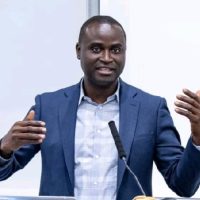
Omar Bah
Dr. Omar Bah is a torture survivor, former journalist, and refugee from The Gambia. He is the founder of the Refugee Dream Center in Providence, Rhode Island, where he specializes in trauma-informed care and support for refugees. Dr. Bah holds a doctorate in Organizational & Leadership Psychology from William James College and completed trauma treatment certification through the Harvard Program in Refugee Trauma.
Through the Refugee Dream Center, Dr. Bah mentors refugee youth and provides critical services to thousands of refugees annually. His expertise includes developing and delivering nationwide training on trauma care, cultural intelligence, and survivor leadership. Dr. Bah is also an adjunct professor at William James College and serves on the Global Advisory Board at Brown University’s Center for Human Rights and Humanitarian Studies.
